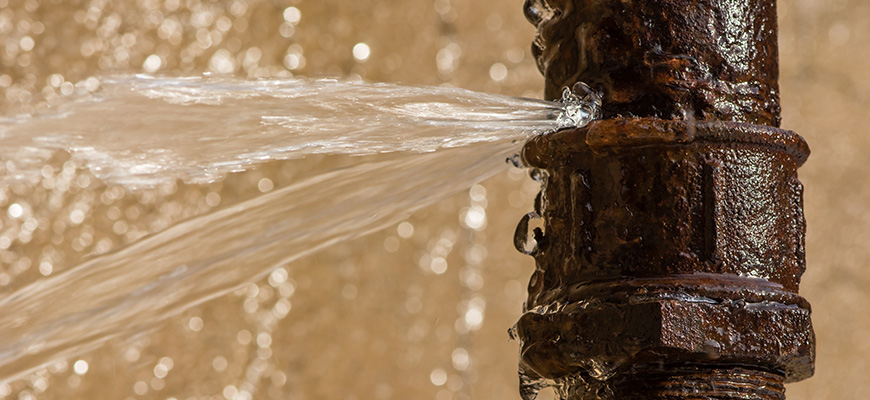If you’re living in an area with hard water, you’re probably well aware of the negative effects it can have on your home. Hard water is water that has high mineral content, usually consisting of calcium and magnesium. While not harmful to your health, it can cause a host of frustrating issues in your home that can be expensive to fix. These issues include clogged pipes, damaged appliances, and a buildup of mineral deposits on your fixtures and appliances. In this article, we’ll explore the benefits of water softeners, how they work, and how to determine if your home needs one.
The effects of hard water on your home and health
Hard water can cause a number of problems in your home, from clogging your pipes to leaving unsightly stains on your fixtures and appliances. But the effects of hard water go beyond just cosmetic issues. Hard water can also cause skin irritation and dryness, as well as exacerbate existing skin conditions like eczema. It can also make your hair dry and brittle, and cause your clothes to fade and wear out faster.
But the effects of hard water aren’t limited to just your personal health and the appearance of your home. Over time, the minerals in hard water can cause serious damage to your plumbing and appliances. This can lead to costly repairs and replacements, and can even shorten the lifespan of your appliances.
What is a water softener and how does it work?
A water softener is a device that removes the minerals that cause hard water. It works by using a process called ion exchange, where the hard water passes through a tank filled with resin beads that attract and trap the minerals. The resin beads are then flushed with salt water, which causes the minerals to be released from the beads and flushed away. The end result is soft water, which is free from the minerals that cause hard water.
Water softeners can be installed in a variety of settings, including residential homes, commercial buildings, and industrial settings. They come in a variety of sizes and styles, and can be customized to fit your specific needs.
Signs that your home needs a water softener
If you’re experiencing any of the following issues in your home, it’s a good sign that you may need a water softener:
- Buildup of mineral deposits on your fixtures and appliances
- Clogged pipes or drains
- Soap scum buildup in your shower or bathtub
- Clothes that are dingy or faded after washing
- Dry, itchy skin or hair
- Stains on your dishes or glassware
If you’re experiencing any of these issues, it’s worth considering a water softener to help alleviate these problems.
Benefits of using a water softener
There are numerous benefits to using a water softener in your home. These include:
- Cleaner dishes: Soft water can help prevent spots and streaks on your dishes and glassware, leaving them sparkling clean.
- Longer lifespan for appliances: Soft water can help prevent the buildup of mineral deposits in your appliances, which can lead to costly repairs or replacements.
- Softer, smoother skin and hair: Soft water is gentler on your skin and hair, leaving it feeling soft and smooth.
- Brighter, longer-lasting clothes: Soft water helps prevent clothes from fading and wearing out faster, which can save you money in the long run.
- Improved water flow: Soft water can help prevent clogs and buildup in your pipes, leading to better water flow and pressure.
Different types of water softeners available
There are several different types of water softeners available, including:
- Salt-based water softeners: These are the most common type of water softeners, and use salt to remove the minerals from hard water.
- Salt-free water softeners: These use a variety of methods to remove minerals from hard water, but do not use salt.
- Dual-tank water softeners: These are similar to salt-based water softeners, but have two tanks instead of one. This allows for continuous soft water, even during the regeneration process.
- Magnetic water softeners: These use magnets to alter the structure of the minerals in hard water, making them less likely to stick to surfaces.
Factors to consider when choosing a water softener
When choosing a water softener, there are several factors to consider, including:
- Water hardness: The level of hardness in your water will determine the size and type of water softener you need.
- Water usage: The amount of water your household uses will determine the size of the water softener you need.
- Budget: Water softeners can range in price from a few hundred dollars to several thousand dollars, so it’s important to consider your budget when choosing a water softener.
- Maintenance: Different types of water softeners have different maintenance requirements, so it’s important to choose a water softener that fits your lifestyle and maintenance preferences.
Installation and maintenance of a water softener
Water softeners should be installed by a professional to ensure they are installed correctly and safely. Regular maintenance is also important to ensure your water softener is working properly and efficiently. This can include things like adding salt to the tank, cleaning the resin beads, and checking the settings on the control panel.
Frequently asked questions about water softeners
- How often do I need to add salt to my water softener? This depends on the size of your water softener and how much water your household uses. Generally, you’ll need to add salt every 4-6 weeks.
- Can I drink softened water? Yes, softened water is safe to drink, but some people prefer the taste of unsoftened water.
- Will a water softener remove all the minerals from my water? No, a water softener will only remove the minerals that cause hard water, like calcium and magnesium. It will not remove other contaminants like bacteria or fluoride.
- Can I install a water softener myself? While it’s possible to install a water softener yourself, it’s recommended that you hire a professional to ensure it’s installed correctly and safely.
Conclusion
Hard water can cause a variety of frustrating problems in your home, from clogged pipes to damaged appliances. But with a water softener, you can combat these issues and enjoy the benefits of soft water. Whether you’re looking to save money on repairs, improve your skin and hair, or simply enjoy cleaner dishes and clothes, a water softener is a smart investment for any homeowner. By understanding the benefits of water softeners and how to determine if your home needs one, you can make an informed decision and enjoy the many benefits of soft water.
Click to Learn More!


